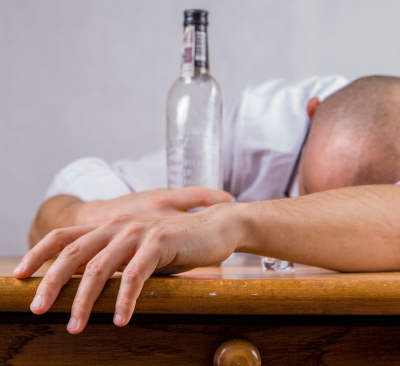I am not a drunkard, but you can call me an occasional drinker. My best drink is vodka, especially the one with chocolate flavor. One of the questions my friends do ask me, which is my focus on this page, is why don’t I get drunk when I drink alcohol. Well, I guess you are about to find out below.
There are several reasons why you might not feel drunk after drinking alcohol. One possible explanation is that you have a high tolerance for alcohol, which means that you can drink more than most people before you start to feel the effects. Well, I fall into this category.
Additionally, factors such as your weight, gender, and the rate at which you drink can all affect how quickly you become drunk. Not everyone has the same alcohol tolerance, and that is the reason you should never compare yourself with anyone or compete with alcohol drinking.
Can someone drink alcohol and not get drunk?
Yes, it is possible for someone to drink alcohol and not get drunk. Some people may have a higher tolerance to alcohol, which can prevent them from becoming drunk even after drinking a significant amount.
In addition, there are other factors that can affect whether or not a person becomes drunk after drinking alcohol, such as:
1. Body size
A person’s body size can affect how much alcohol they can consume before becoming drunk. For example, a larger person may be able to drink more alcohol before becoming drunk than a smaller person.
This is because the larger person has more body mass for the alcohol to be distributed throughout, so their blood alcohol concentration (BAC) will be lower than the smaller person’s BAC after consuming the same amount of alcohol.
2. Stomach content
There are several factors that can determine whether a person becomes drunk or not, and one of them is the amount of food in their stomach. When a person has food in their stomach, it can slow down the absorption of alcohol into their bloodstream.
This can prevent them from becoming drunk as quickly as they would if they had an empty stomach. However, the type and amount of food in their stomach can also affect how drunk they become. For example, fatty foods can slow down the absorption of alcohol even more than other types of food, while protein-rich foods can speed it up.
3. Dehydration
Dehydration is not a direct factor in whether a person becomes drunk, but it can indirectly affect how drunk a person feels. Dehydration can make a person feel more tired, dizzy, and lightheaded, which can exacerbate the effects of alcohol.
4. Gender
Gender plays a huge role in determining if someone becomes drunk or not. Women are more likely to become intoxicated than men and tend to have more alcohol tolerance than men.
5. Ethnicity
Ethnicity plays a huge role in whether or not a person gets drunk. The reason for this is that some ethnicities are more susceptible to alcohol than others, and so their body’s ability to metabolize it changes.
For example, someone of Irish descent has a higher chance of getting drunk than someone who is Germanic or Scandinavian. This is because Irish people have historically been exposed to alcohol at a young age and have developed enzymes that break down alcohol.
6. Speed of alcohol consumption
The speed at which you consume your alcohol can make a big difference in whether or not you become drunk. If you drink slowly, your body has time to metabolize the alcohol before it gets into your bloodstream and affects you.
If you drink large amounts of alcohol quickly, however, your body has less time to metabolize and absorb it before it gets into your bloodstream and affects you. This can result in faster intoxication and an increased risk of injury or death for people who consume large amounts of alcohol quickly.
Ways not to get drunk on alcohol
There are several ways to avoid getting drunk on alcohol:
1. Drink slowly and pace yourself: Sip your drink slowly, and take breaks in between drinks to allow your body time to process the alcohol.
2. Eat before and while drinking: Eating a meal before drinking can help slow the absorption of alcohol into your bloodstream. Snacking on food while you drink can also help reduce the effects of alcohol.
3. Choose lower alcoholic beverages: Opt for drinks that have a lower alcohol content, such as light beer or wine spritzers. This will allow you to enjoy the taste of your drink without getting too intoxicated.
4. Drink plenty of water: Staying hydrated is key to avoiding the negative effects of alcohol. Alternate between alcoholic drinks and water, and try to drink a glass of water for every alcoholic beverage you consume.
5. Know your limits: It’s important to know how much alcohol your body can handle before you start to feel drunk. If you start to feel the effects of alcohol, it’s time to stop drinking or switch to a non-alcoholic beverage.
Can intake of salt prevent one from getting drunk?
Yes, salt can prevent you from getting drunk. The reason why is that the body’s ability to metabolize alcohol depends on the amount of water in your body and the amount of sodium in your bloodstream.
In addition to this, salt will affect how quickly alcohol is absorbed into your bloodstream. The more sodium there is in your body, the slower it will take for alcohol to enter your bloodstream. This means that people who eat a lot of salt are less likely than other people to get drunk on a single serving of alcohol because they metabolize it more slowly than others do.
Can the consumption of vitamin c prevent one from getting drunk?
While vitamin C is an essential nutrient for overall health and well-being, it will not prevent you from getting drunk. Alcohol is a depressant that affects the central nervous system, and consuming too much of it can lead to impaired judgment and coordination, slurred speech, and altered consciousness.
Vitamin C, on the other hand, is a water-soluble vitamin that acts as an antioxidant in the body, helping to protect cells from damage caused by free radicals. While vitamin C may have some health benefits, it is not a cure-all and will not prevent the effects of alcohol on the body.
How to build up alcohol tolerance
There is no surefire way to build up alcohol tolerance. The only way to become more tolerant of alcohol is to drink more often. However, this is not a good idea for several reasons.
First and foremost, drinking more often can lead to alcohol dependency and addiction. These conditions can have serious negative effects on your health, relationships, and overall well-being.
Furthermore, alcohol tolerance does not make you immune to the effects of alcohol. Even if you have a high tolerance, drinking too much alcohol can still impair your judgment, coordination, and reflexes. This can lead to dangerous situations, such as drunk driving and alcohol poisoning.
In short, it is not advisable to try to build up your alcohol tolerance. Instead, it is better to drink in moderation and to avoid drinking to the point of intoxication.
Conclusion
This post is all about why don’t I get drunk when I drink alcohol. Some believe there are many reasons, but I seriously agree that the major one is the tolerance to alcohol. However, it is not good at all to build a tolerance to alcohol as it might end up leading to addiction.




